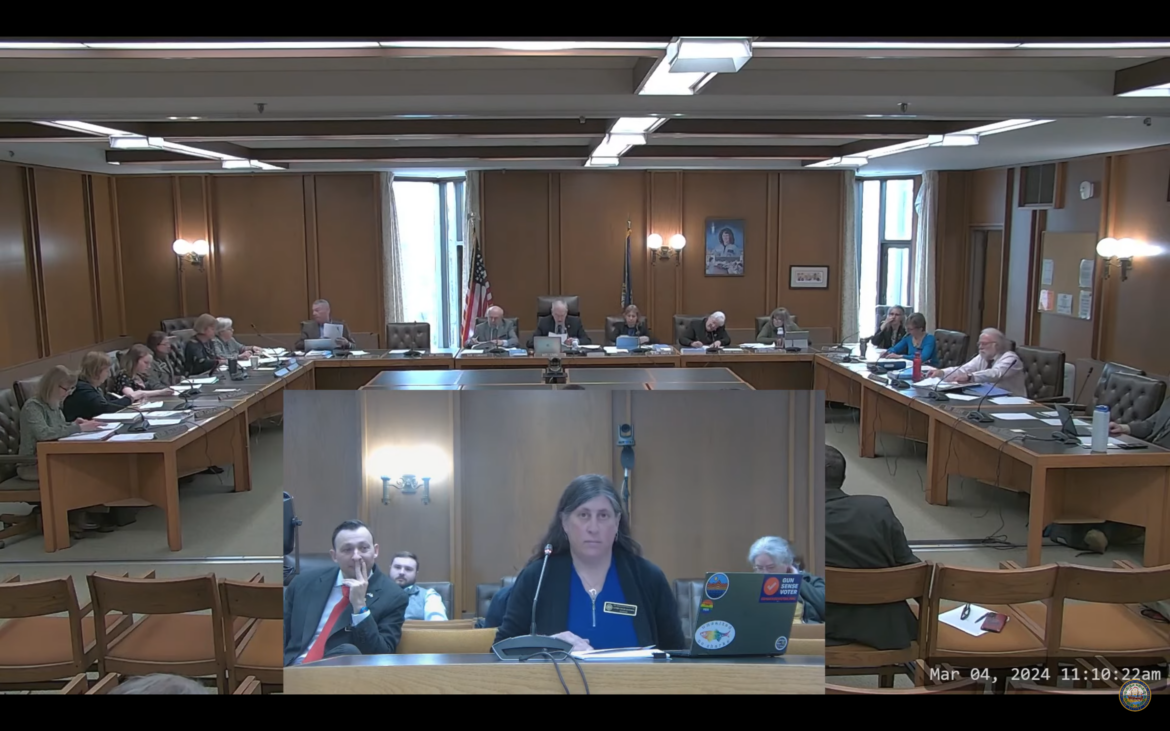By GARRY RAYNO, InDepthNH.org
CONCORD — The Department of Education Commissioner should have a background in education, supporters of a bill setting the minimum requirements told a House committee Monday.
They said schools and education requirements are very complex and a commissioner needs to know how public schools work.
But opponents said setting standards that go further than those for other commissioners is counterproductive and would stymie a fresh look at the traditional school system model.
House Bill 1084 would require an education commissioner to:
Hold an advanced degree from an accredited college or university;
Be certified as a teacher or as a school administrator;
And have at least five years experience teaching or as an administrator in a public school.
“The person who heads up the (department of education) should be familiar with how public schools actually work,” Rep. Loren Selig, D-Durham, the prime sponsor of the bill, told the House Education Committee. “The commissioner needs a deep understanding of the complexity of the education system.”
The current education commissioner, Frank Edelblut, does not have experience in public education.
Selig noted the state at one time had minimum qualifications for the education commissioner, but it was repealed during the Reagan era.
Selig read the qualifications other states require for education commissioners, noting what she is proposing is less than the requirements needed to be a school principal and are the minimum not the maximum requirements.
She said she talked to those who hire personnel in towns and in corporations and they said they look for expertise in the field, advanced degrees, experience and skills within the industry and that the person fully understands and demonstrates interest in supporting that organization.
If you had a complex leg fracture with the bone sticking out of the skin, you wouldn’t want me to be your surgeon or supervising the surgeon, Selig said.
Rep. Mike Belcher, R-Wakefield, said some schools are struggling and some are outright failing, and being a principal does not confer some magic ability to manage a school.
Someone within the current system will continue to reproduce the current system, he noted, and not change it.
But Selig said someone with experience in education, a public or private school, or a charter school or home school would have some understanding versus someone with no experience at all.
“Schools are not factories,” she said.
Rep. Corinne Cascadden, D-Berlin, asked if a town would hire a fire chief who had not been a fireman, or a police chief who had not been a police officer, and Selig said no.
Aubrey Freeman of Bridgewater opposed the bill saying it would eliminate flexibility and options.
People who are inside the system will not change the system, he said. You need to hire people to change the system and provide more options for everyone.
Jennifer Belmont Earl of Barrington supported the bill and she said she has two autistic children who have a right to a public school education, but she fears they may be pushed out of the system.
Currently the commissioner does not need any public school experience, she said, and there is a blind spot that children with disabilities need access to a public education.
“The education of children is complex and presents many challenges,” Belmont Earl said, “and only someone with knowledge of the system will understand.”
Rep. Stephen Woodcock, D-Center Conway, wondered if the bill passes what would happen to the current commissioner who has three more years in his term.
The committee did not make an immediate recommendation of the bill.
Garry Rayno may be reached at garry.rayno@yahoo.com. Garry Rayno is InDepthNH.org’s State House bureau chief who has 40 years of reporting experience.





